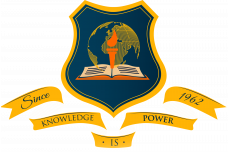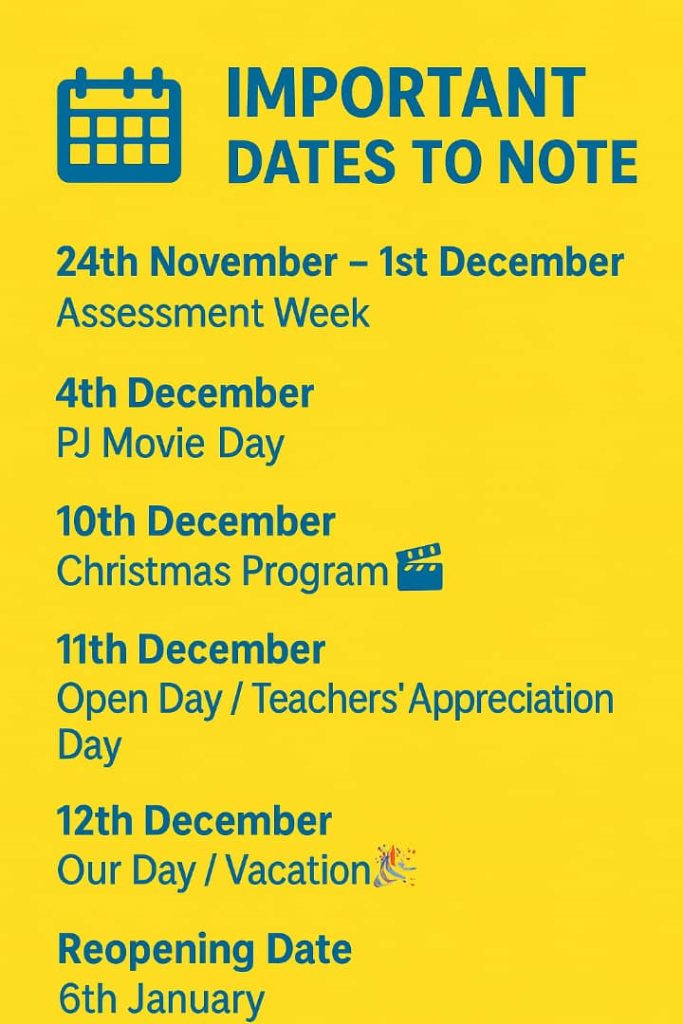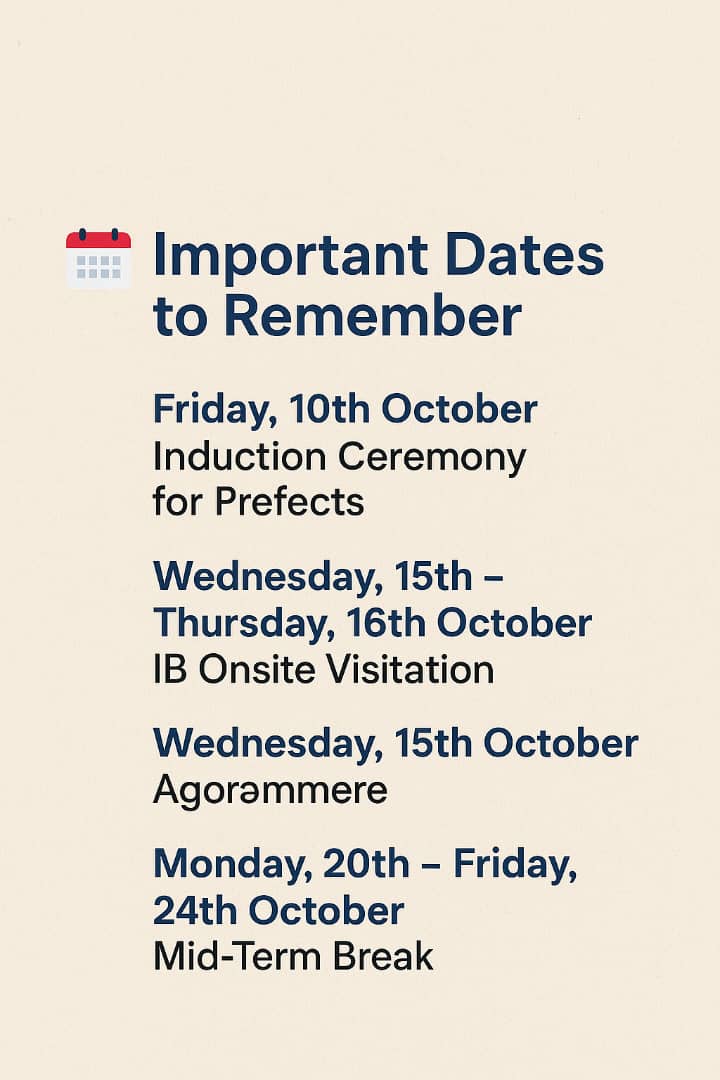IB WORLD SCHOOL
Datus International School as an IB World school implements the International Baccalaureate Primary Years Programme, known as the PYP. The PYP is an International Curriculum for students aged 3 – 11 years. It focuses on the development of the whole child, addressing social, physical, emotional and cultural needs. At the same time, it gives children a strong foundation in all the major areas of knowledge: Languages, Mathematics, Science, Social Studies, Visual Arts, Music, Personal and Social Education and Physical Education. The PYP strives to help children develop an international perspective – to become aware of and sensitive to the points of view of people in other parts of the world. From Sunflower (3 years group) up to the end of Year 6 the curriculum at Datus International School (DIS) is based upon the framework of the International Baccalaureate Primary Years Programme (PYP)
IB WORLD SCHOOL
ACHIEVEMENT LEVEL DESCRIPTORS
| ABBREVIATION | TITLE | DESCRIPTION |
| OA | Outstanding Achievement | The student has an extensive knowledge and understanding of the content and can readily apply this knowledge. In addition, the student has achieved a very high level of competence in the processes and skills and can apply these skills to new situations. |
| HA | High Achievement | The student has a thorough knowledge and understanding of the content and a high level of competence in the processes and skills. In addition, the student is able to apply this knowledge and these skills to most situations. |
| SA | Sound Achievement | The student has a sound knowledge and understanding of the main areas of content and has achieved an adequate level of competence in the processes and skills. A student at this level is achieving at year level expectation. |
| BA | Basic Achievement | The student has a basic knowledge and understanding of the content and has achieved a basic level of competence in the processes and skills. The student is working positively towards meeting the year level expectations. |
| LA | Limited Achievement | The student has an elementary knowledge and understanding in few areas of the content and has achieved very limited competence in some of the processes and skills. |
| IP | Individual Achievement | Learning adjustments have been made in relation to teaching, learning and assessing that enable a student to access and participate in achieving syllabus outcomes and content that are different from those for the year group. |
| NA | Unable to Assess | Unable to assess due to extended absence or incomplete tasks. |
EFFORT LEVEL DESCRIPTORS
| ABBREVIATION | TITLE | DESCRIPTION |
| O | Outstanding | The student has given an outstanding effort and through this exceptional effort has demonstrated initiative and independence above the expectations of the year level. |
| VG | Very Good | The student has given a very good effort and through this remarkable effort has demonstrated initiative and independence above the expectations of the year level. |
| G | Good | The student has given a good effort and through this significant effort has demonstrated initiative and independence above the expectations of the year level. |
| S | Satisfactory | The student has given a satisfactory effort and through this acceptable effort has demonstrated initiative and independence at the expectations of the year level. |
| I | Improving | The student has an elementary knowledge and understanding in few areas of the content and has achieved very limited competence in some of the processes and skills. |
| NS | Needs Strengthening | The student has given a limited effort and through this partial effort has demonstrated some degree of initiative and independence at the expectations of the year level. |
| NA | Not Applicable | The student is not being assessed on this strand or outcome at this time. |
IB WORLD SCHOOL
APPROACHES TO LEARNING
| Skill | Achievement |
Communication Listening, Speaking, Reading, Writing, Non-verbal, Viewing, Presenting | BA |
Social Accepting Responsibility, Respecting Others, Cooperating, Resolving Conflict, Group Decision Making, Adopting a Variety of Group Roles | HA |
Thinking Acquisition of Knowledge, Comprehension, Application, Analysis, Synthesis, Evaluation, Dialectical Thought, Metacognition | OA |
Research Formulating Questions, Observing, Planning, Collecting Data, Recording Data, Organizing Data, Interpreting Data, Presenting Research | SA |
Self-management Gross Motor, Fine Motor, Spatial Awareness, Organization, Time Management, Safety, Healthy Lifestyles, Codes of Behaviour, Informed Choices |
Written Curriculum
The International Baccalaureate® (IB) Primary Years Programme (PYP) balances the acquisition of significant and relevant knowledge and skills, the development of conceptual understanding, the formation of personal, positive attitudes and the capacity to take responsible actions.
The PYP:
- addresses students’ academic needs and their social and emotional well-being
- encourages students to develop independence and to take responsibility for their own learning
- supports students’ effort to gain understanding of the world and to function effectively within it
- helps students to establish personal values as a foundation on which international-mindedness will flourish.
The written curriculum, outlined below, is made up of five essential elements and details what students will learn.
Essential elements in the PYP
The five essential elements of the PYP are:
- knowledge, which is both disciplinary, represented by traditional subject areas (language, maths, science, social studies, arts, PSPE) and transdisciplinary
- concepts, which students explore through structured inquiry in order to develop coherent, in-depth understanding, and which have relevance both within and beyond subject areas
- skills, which are the broad capabilities students develop and apply during learning and in life beyond the classroom
- attitudes, which contribute to international-mindedness and the wellbeing of individuals and learning communities, and connect directly to the IB learner profile
- action, which is an expectation in the PYP that successful inquiry leads to responsible, thoughtful and appropriate action.
In order to implement the PYP, schools must have begun the process of becoming an IB World School. You can find information on how to do this on our website.
Learn more about written curriculum in a PYP workshop for teachers.
Taught Curriculum
The taught curriculum is the part of the International Baccalaureate© (IB) Primary Years Programme (PYP) that sets out its pedagogical approach.
It identifies how schools should teach the PYP written curriculum.
The PYP is committed to structured, purposeful inquiry that engages students actively in their own learning. The programme supports students’ efforts to construct meaning from the world around them by:
- drawing on their prior knowledge
- providing provocation through new experiences
- providing opportunities for reflection and consolidation.
This approach respects students’ developing ideas about how the world works. It encourages them to question, consider and refine their understanding of the social and natural world.
How do IB educators plan for learning in the PYP?
Collaboration is a key part of planning for schools implementing the PYP. All teachers are engaged in the planning process, defining the curriculum’s central ideas, discussing how best to bring inquiry into those ideas in the classroom, and finding ways to meet the needs and interests of every student.
Teachers must attend training in order to implement the PYP. The IB offers a wide range of professional development to support educators in gaining a deeper understanding of the programme.
You can find out more about professional development on our website
Assessed Curriculum
The unique approaches to teaching and learning in the International Baccalaureate® (IB) Primary Years Programme (PYP) can be explained through the taught, written and assessed curriculum.
The assessed curriculum explains how teachers go about gathering and analysing information about student performance. The IB does not set examinations or moderate grades in the PYP.
What are the purposes of assessment in the Primary Years Programme?
The purposes of assessment are to:
- promote student learning
- provide information about student learning
- contribute to the successful implementation of the programme.
Through assessment, the IB helps schools teaching the Primary Years Programme (PYP) to identify what students know, understand, can do and value at different stages in the teaching and learning process.
In the PYP, learning is viewed as a continuous journey, where teachers identify students’ needs and use assessment data to plan the next stage of their learning.
Teachers use a wide range of assessment strategies to collect information on each of the elements represented in the written curriculum: the understanding of concepts, the acquisition of knowledge, the mastering of skills, the development of positive attitudes and the ability to take responsible action.
The PYP Exhibition: encouraging in-depth, collaborative inquiry
In the final year of the PYP, students, carry out an extended, in-depth, collaborative project known as the PYP exhibition.
This involves students working collaboratively to conduct an in-depth inquiry into real life issues or problems. Students collectively synthesise all of the essential elements of the PYP in ways that can be shared with the whole school community.
It also provides teachers with a powerful and authentic process for assessing student understanding.
The exhibition represents a unique and significant opportunity for students to exhibit the attributes of the IB learner profile developed throughout their engagement with the PYP.
It also provides schools and students with a wonderful opportunity to celebrate the transition of learners to the next phase of their education.


